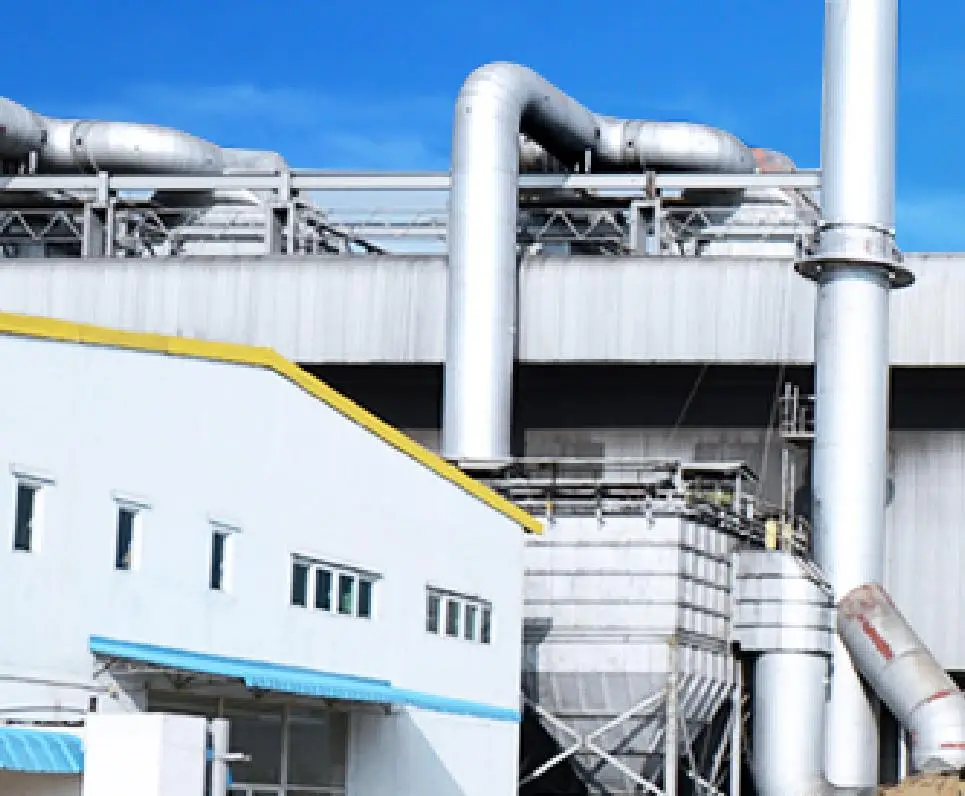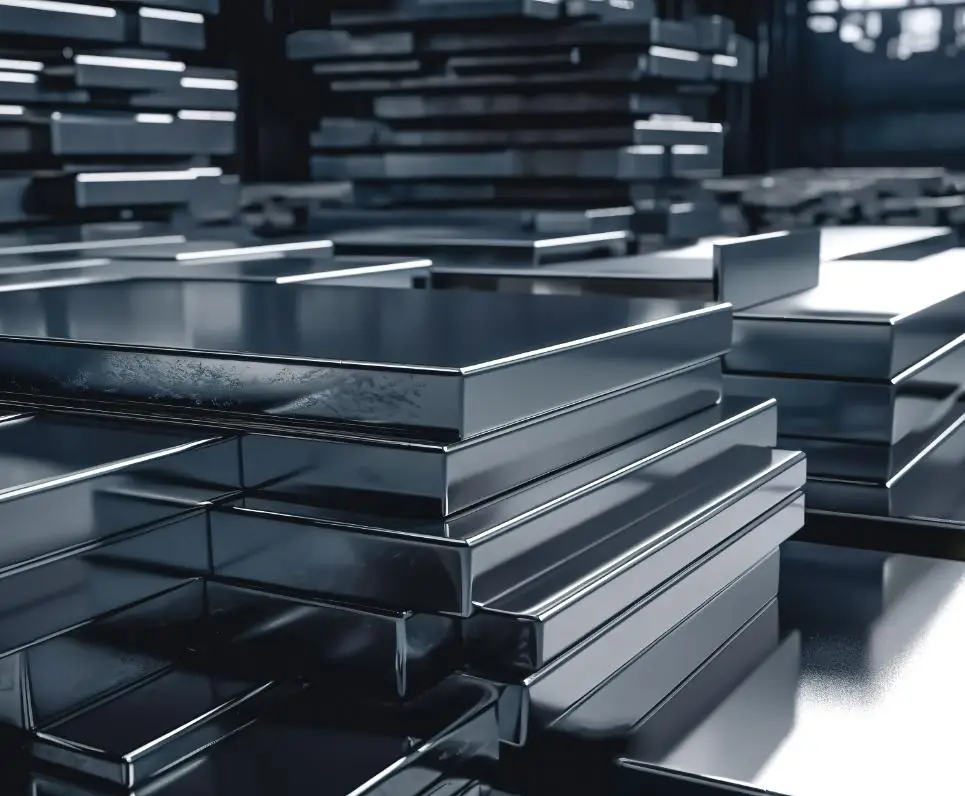ข้อมูลบริษัท
บริษัท เชาว์ สตีล อินดัสทรี้ จำกัด (มหาชน)
บริษัท เชาว์ สตีล อินดัสทรี้ จำกัด (มหาชน) ("บริษัท" หรือ
"CHOW" ได้ก่อตั้งขึ้นเมื่อวันที่ 11 พฤตจิกายน 2546 เพื่อประกอบธุรกิจผลิตและจำหน่ายเหล็กแท่งยาว (Steel Billet โดยมีเศษเหล็ก(Scrap) เป็นวัตถุดิบหลักที่ใช้ในการผลิตเหล็กแท่งยาว ทั้งนี้ บริษัทมีกระบวนการผลิตผลิตภัณฑ์ที่ใช้เทคโนโลยีการผลิตที่นำเข้าจากต่างประเทศ และเป็นที่ยอมรับในระดับสากล โดยกระบวนการผลิต
ผลิตภัณฑ์เหล็กแท่งยาวของบริษัทมี 3 ขั้นตอนหลัก คือ ขั้นตอนการจัดเตรียมเศษเหล็ก ขั้นตอนการหลอมเศษเหล็กด้วยเตาแบบเหนี่ยวนำกระแสไฟฟ้า (Electric Induction Furnace: EIF) และปรุงแต่งส่วนผสมเหล็กเพื่อให้ได้คุณภาพตามมาตรฐานและตรงกับความต้องการของลูกค้า และขั้นตอนการหล่อน้ำเหล็กเป็นเหล็กแท่งยาวโดยเทคโนโลยีการหลอมเหล็กด้วยเตาหลอมเหล็กแบบเหนี่ยวนำกระแสไฟฟ้าจะใช้วิธีเปลี่ยนพลังงานไฟฟ้าให้กลายเป็นพลังงานความร้อนสำหรับการหลอมเหล็ก ทั้งนี้ การใช้พลังงานไฟฟ้าแทนการเผาไหม้ของเชื้อเพลิงจะช่วยลดต้นทุนการผลิตและลดผลกระทบต่อสิ่งแวดล้อม หลังจากนั้น ลูกค้าจะนำเหล็กแท่งยาวไปผลิตต่อด้วยการรีดเป็นผลิตภัณฑ์เหล็กทรงยาว ได้แก่ เหล็กเส้นกลมเหล็กข้ออ้อย และเหล็กลวด เป็นต้น ผลิตภัณฑ์เหล็กทรงยาวเหล่านี้เป็นวัสดุหลักที่ใช้ในอุตสาหกรรมการก่อสร้างขนาดกลางและขนาดเล็กเช่น บ้าน อาคารพาณิชย์ และงานก่อสร้างทั่วไป รวมทั้งเครื่องมืออุปกรณ์ ส่วนประกอบยานยนต์ และชิ้นส่วนต่างๆ เป็นต้น และในอุตสาหกรรมการก่อสร้างขนาดใหญ่ที่ต้องการเหล็กแท่งยาวที่มีความแข็งแรงสูง เพื่อใช้ในงานคอนกรีตเสริมเหล็กที่ต้องการความแข็งแรงและคงทน เช่น สะพาน เขื่อน ทางด่วน งานก่อสร้างที่ต้องรับแรงอัด หรืออาคารสูง เป็นต้น

The advantage of the induction furnace is a clean, energy-efficient and well-controllable melting process compared to most other means of metal melting. The Company’s customers use billet to manufacture round bar, deformed bar, and wire rod. These long products are mainly used in small and medium construction works such as residential and commercial units as well as other general construction works, including machine tools, auto parts and components, and large-scale construction works that require steel products for reinforced concrete which require high strength and durability for construction of bridges, dams, expressways, and structures that can tolerate high compression, as well as high-rise buildings.

At present, the Company has steel billet factory and branch located in Kabinburi Industrial Estate, Prachinburi Province
on a total land area of around 70 rai. It had an initial maximum billet production capacity of 250,000 tons per year and later increased the capacity by 480,000 tons per year in its phase 2 factory, making up a total production capacity of 730,000 tons per year (maximum capacity requested for permission in the Environmental Impact Assessment Report or EIA Report).

However, as the Company needs to manage and control electricity costs, it has a policy in place to produce steel billet only during off-peak periods, in order to keep electricity costs lower than that during the peak periods. Both phases of the factory have accordingly been running at a combined production capacity of 450,000 tons per year during off-peak periods at present. The Company’s major customers are rolling mills that have no blast furnaces of their own and rolling mills that have their own blast furnaces but with inadequate production capacity and thus relying on billets from external sources.
Besides, the Company has been a member of the London Metal Exchange (LME), a world leading futures market, hence more opportunities and extended channels for its exports of products to the global markets, such as ASEAN, etc., and reflecting international acceptance of its product quality. This can help boost the Company’s image and reputation as well as recognition of its products in overseas markets.
CEPL was established in order to restructure shareholding in the Company’s subsidiaries and enhance clarity of its business structure. The Company will continue operating its core business of manufacturing and distribution of steel billet, while CEPL will engage in operating as a holding company with a policy to make investment in renewable energy business which bears low risk and has high growth potential in line with the rising awareness of the importance of renewable energy among countries across the globe. Series of measures have been issued to stimulate and promote renewable energy utilization in a more concrete manner to preserve the environment and ensure the country’s energy security. CEPL and subsidiaries have engaged in renewable energy business focusing on investing in and provision of services in relation to solar power plants both at home and overseas. At present, CEPL has four main types of business as follows:
CEPL’s main types of business
Production and distribution of solar electric power
Provision of consultancy and services relevant to solar power plants
Distribution of equipment in relation to construction of solar power plants
Strategic distribution of solar power plants

